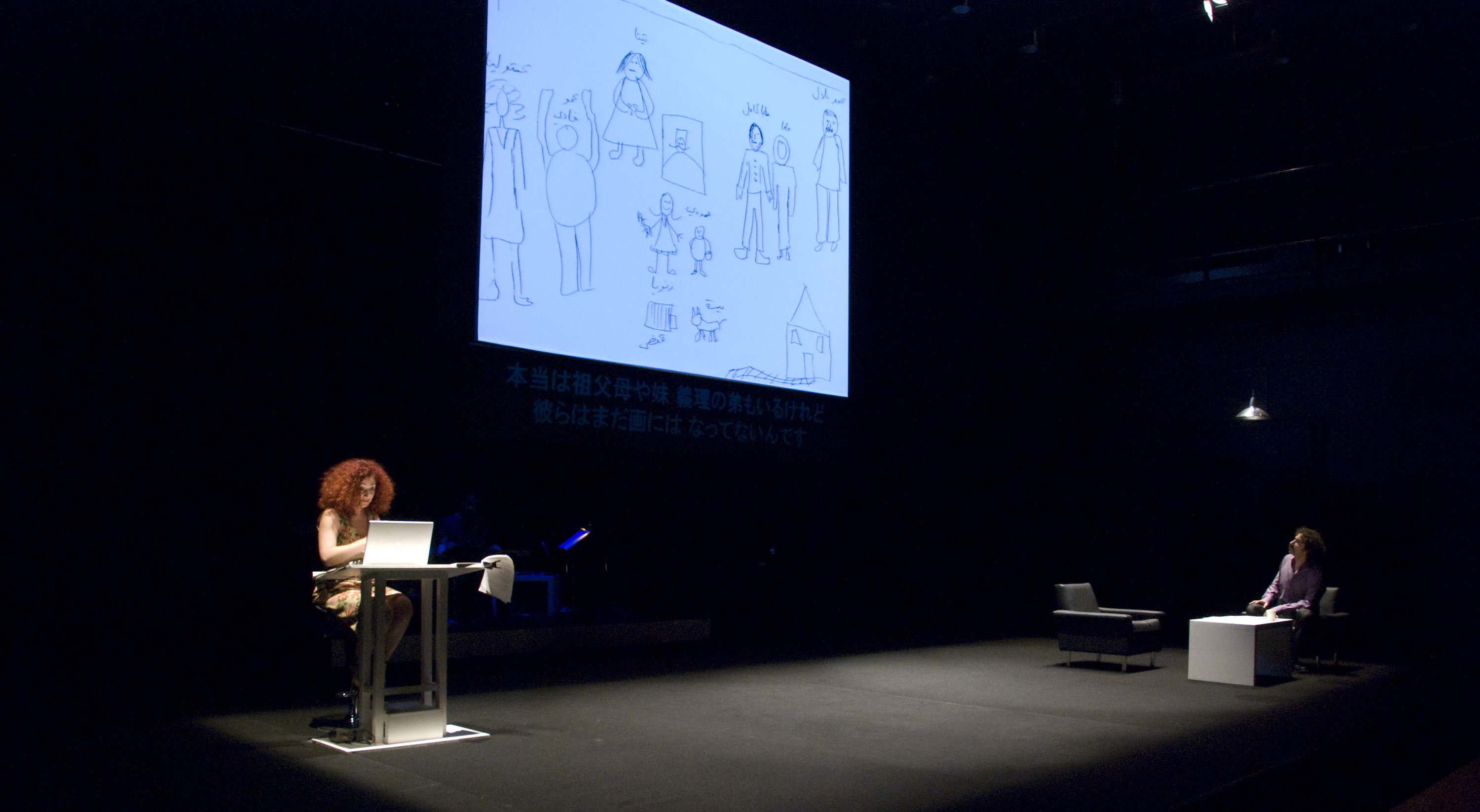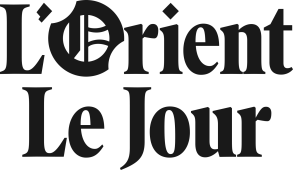Lina Majdalanie, Rabih Mroué
Photo-Romance
octoberoct 22 – 25
Tuesday october 22
20h
Wednesday october 23
20h
Thursday october 24
19h
Friday october 25
19h
Concept, written and directed by Lina Majdalanie, Rabih Mroué. Set design Samar Maakaroun. Music compositions Charbel Haber. Translation Masha Refka. With Lina Majdalanie, Charbel Haber, Rabih Mroué. Direction of the “bande-image” Lina Majdalanie, Rabih Mroué, Sarmad Louis. Director of photography Sarmad Louis. Assistant director and Executive producer Petra Serhal. Costumes Zeina Saab de Melero. Make-up Stéphanie Aznarez. Cast for the "bande-image" Rabih Mroué and Lina Saneh. Special guest Mona Mroué.
Delegated production The Lebanese Association for Plastic Arts, Ashkal Alwan (Beyrouth)
Coproduction Festival d’Avignon ; Scène nationale de l’Essonne ; Festival delle Colline Torinesi Torino Creazione Contemporanea ; Festival/Tokyo ; La Villette ; HAU Hebbel am Ufer (Berlin)
With the support of the Mission culturelle de l’Ambassade de France au Liban ; The Lebanese Association for Plastic Arts, Ashkal Alwan
Acknowledgements Ali Cherri, Mona Mroué, Abdo Nawwar et Alexandre Paulékévitch ; our partners, Sergio Ariotti, Monica Guillouet-Gélys, Isabella Lagattolla, Matthias Lilienthal, Frédéric Mazelly, Chiaki Soma, Christine Tohmé, Hortense Archambault and Vincent Baudrillet ; Denis Gaillard and Jany Bourdais from the cooperation and cultural action department of the French Embassy in Lebanon, Fadi Abi Samra, Ziad Nawfal, Youmna Habbouch, Mona S’Eydoun, Bachir Yaghi, Stéphanie Aznarez, Assem Bazzi, Feiruz Serhal, Mariane Katra, Léa Kodeih, Hala El Masri, Zeina Saab de Melero and Walid Mroué ; Joana Hadjithomas, Lamia Joreige, Khalil Joreige, Lynn Kodeih, Souad and Ahmad Mroué, Yasser Mroué, Francesca Spinazzi, Pierre Sarraf (festival born in Beirut), Claire Verlet
In partnership with L'Orient Le Jour
The Théâtre de la Cité internationale and the Festival d'Automne à Paris are presenting this show in co-realisation.
How do we go about presenting the adaptation of a famous film to the Lebanese authorities in charge of censorship? We come to realize that it is about a film which recounts the improbable encounter between two very dissimilar individuals both of whom are experiencing social alienation in fascist Italy in 1938. The adaptation is set in Beirut in 2007, shortly after an Israeli attack on Lebanon.
In a humorous way, the confrontation with the judge who must decide on the merits of the choices made in the adaptation process enables the Majdalanie-Mroué duo to defend concepts of stage representation that are dear to them. In the adaptation, the protagonists, which we discover in the form of a photo comic, are a divorced housewife who devotes her entire life to household chores, and a journalist who has been banned because of his free- thinking. Neither of them attended the two demonstrations simultaneously taking place that day in Beirut. Indeed, their first encounter was as neighbors during this suspended moment in time in their daily lives. What emerges is an ironic portrait of Lebanese society, split into two irreconcilable parts, and in which a host of undying prejudices thrive. Aside from the various essentially folkloric details, the play brings to the forefront the universality and contemporary nature of the divisions that are exacerbated through racism, sexism, patriarchy, and communitarianism.
Interview with Lina Majdalanie & Rabih Mroué
In the same place

